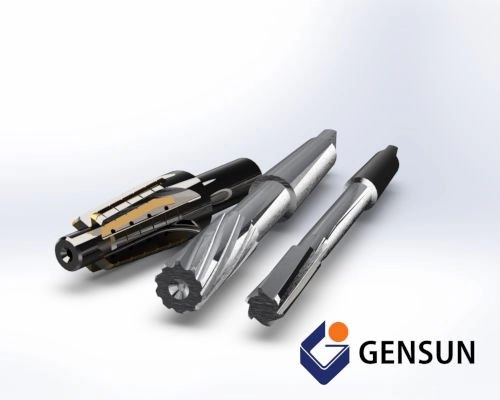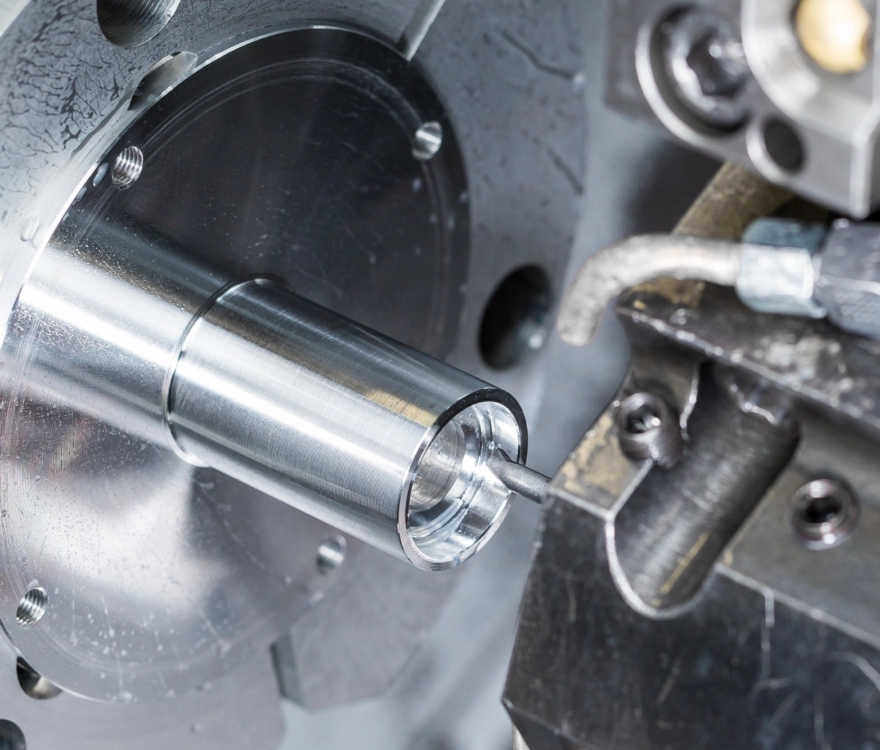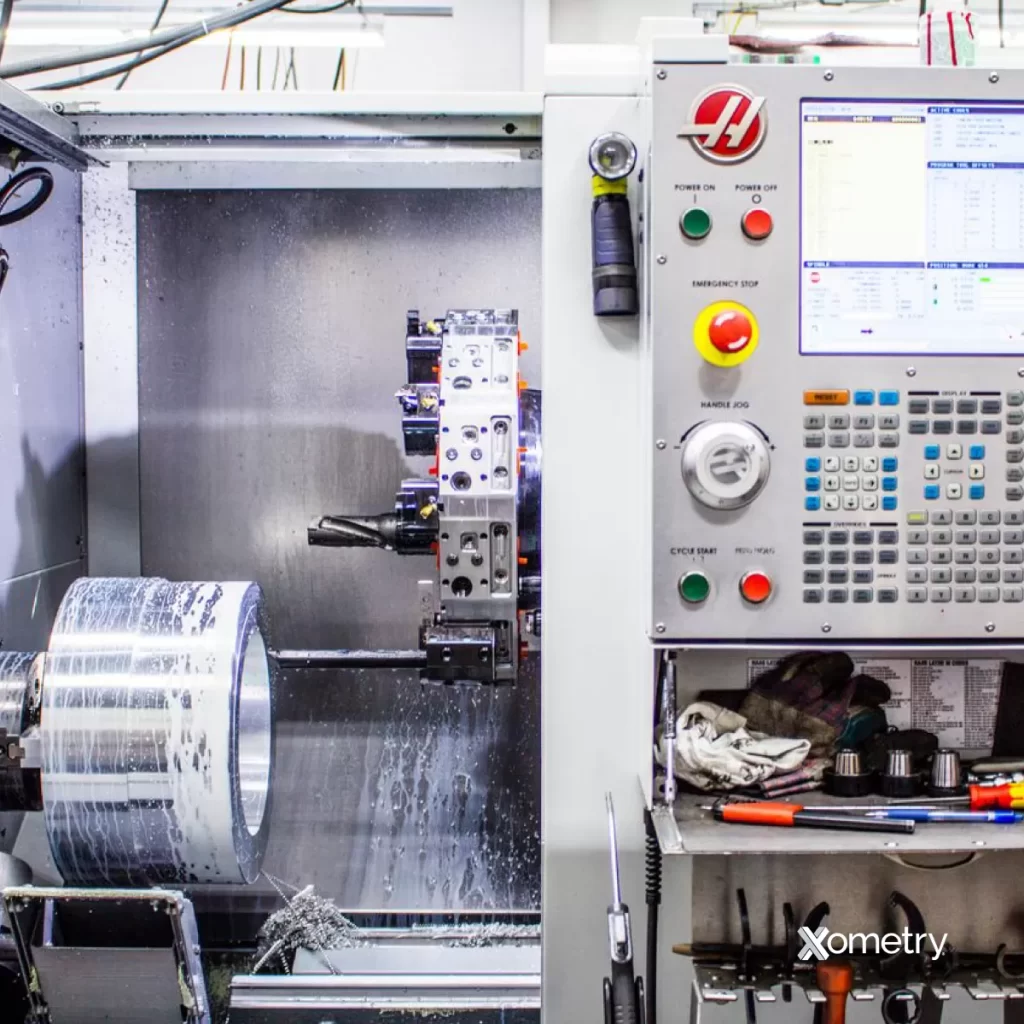Understanding Internal Threads in CNC Machining
What Are Internal Threads and Why They Matter
Internal threads are grooves cut inside a hole designed to mate with matching external threads, like bolts or screws. They play a critical role in mechanical assemblies, providing secure fastening, load transfer, and easy assembly or disassembly. Whether it’s a precision aerospace component or an automotive part, the quality and accuracy of internal threads directly impact the overall performance and safety of the device.
CNC Turning vs CNC Milling for Internal Threading
When it comes to creating internal threads, CNC turning and milling differ significantly:
- CNC Turning uses rotating tools and a fixed workpiece to cut threads inside cylindrical holes, ideal for round parts and high-speed production.
- CNC Milling employs cutting tools that move along multiple axes, perfect for complex thread profiles and non-round holes, such as square or irregular shapes.
Each process offers unique advantages depending on thread complexity, material, and precision requirements.
Where Internal Threads Are Commonly Used
Internal threading is crucial across many industries:
- Aerospace: For lightweight yet strong fasteners in engines and airframes.
- Automotive: In engine parts, transmissions, and safety systems requiring reliable fastening.
- General Manufacturing: For machinery, electronics, and consumer products needing durable internal threads.
Understanding the project’s specific needs helps determine whether turning or milling and which CNC threading tools to use for optimal results.
Essential Tools for Internal Threading in CNC Turning

When it comes to internal thread cutting in CNC turning, having the right tools makes all the difference. Here’s a quick look at the main tools used, their strengths, and where HYCNC recommends using them.
Taps for Internal Threads
Taps are the go-to choice for small diameter holes and high-speed production runs. There are several types to know:
- Hand taps: Simple and manual, best for low-volume or setup work.
- Machine taps: Designed for CNC machines, they offer consistent speed and accuracy.
- Spiral flute taps: Great for pushing chips out of blind holes, improving thread quality and tool life.
Pros of taps:
- Fast and efficient for smaller threads.
- Relatively low cost.
- Simple to use in CNC turning.
Cons of taps:
- Chip removal can be a challenge in deep holes.
- Not ideal for harder materials.
- Limited ability to customize thread profiles.
Single Lip Threading Tools
These tools are perfect for precise internal threads on concave surfaces, such as valves or specialized components. They work great on CNC lathes when you need custom thread profiles and tight tolerances.
- Customizable for unique thread shapes.
- Provide excellent finish quality.
- Good for smaller runs or specialized parts.
Thread Chasing Heads
For automated, high-precision thread cutting, thread chasing heads are a smart choice. They’re made for:
- Deep hole threading where normal taps struggle.
- Maintaining thread accuracy under demanding production conditions.
- High-volume CNC turning operations needing consistent results.
HYCNC Recommended Tools for CNC Turning
At HYCNC, we focus on matching the right tool to your project needs. For internal threading in CNC turning, we recommend:
- Machine taps for small and medium diameter threads in softer materials.
- Single lip threading tools for custom or complex thread forms.
- Thread chasing heads for deep or high precision threading in tougher applications.
Using the right combination of these tools helps us deliver consistent, high-quality internal threads tailored to your specifications.
Essential Tools for Internal Threading in CNC Milling
Thread Mills for Internal Thread Cutting
Thread mills are a go-to tool for internal threads when using CNC milling. They come in two main types: solid carbide thread mills and indexable insert thread mills. Both offer great precision and versatility.
Why Choose Thread Mills:
- Can create custom thread profiles easily
- Work well on large holes where tapping isn’t practical
- Handle tough materials like titanium and composites efficiently
- Enable high precision with minimal tool wear
These features make thread mills popular in aerospace and automotive parts where strength and accuracy matter.
Copy Milling Cutters for Complex Threads
Copy milling cutters are specialized tools designed for cutting complex internal thread profiles. They’re perfect when exact dimensions and custom thread shapes are needed.
Best Uses:
- Automated threading on CNC milling machines
- Projects requiring repeatable precision
- Threads with non-standard or fine-pitch profiles
These cutters help streamline production in industries demanding tight tolerances.
Circular Insert Milling Heads for Precision
After drilling the hole, circular insert milling heads come into play for precise internal threading. These tools excel at helical interpolation, a key milling technique that allows smooth and accurate thread cutting.
Benefits of Circular Insert Milling Heads:
- Provide clean, consistent threads
- Improve thread surface finish compared to traditional methods
- Reduce machining time on harder materials
At HYCNC, we use advanced circular insert milling heads to deliver superior thread quality in complex parts.
At HYCNC, our lineup of advanced CNC milling tools is designed to meet the demanding needs of internal thread cutting. Whether it’s the versatility of thread mills, precision of copy milling cutters, or efficiency of circular insert heads, we ensure every threading task hits exact specs with maximum efficiency.
Comparing Tapping vs Thread Milling for Internal Threads
When it comes to internal thread cutting in CNC machining, choosing between tapping and thread milling depends largely on your project needs like speed, precision, and material.
Key Differences in Speed and Precision
- Tapping is generally faster for producing internal threads in smaller holes. It’s a quick method widely used in high-volume production to save cycle time.
- Thread milling offers higher precision and flexibility. It’s slower but excels with complex or custom threads, and works well on harder materials like titanium or composites.
When to Use Tapping
- Best for smaller diameter holes
- Ideal if you need fast production speeds
- Works well with softer to medium-hard materials
- Suitable for standard thread profiles where tight tolerance isn’t critical
When to Use Thread Milling
- Perfect for custom or non-standard thread profiles
- Recommended for hard materials or difficult-to-machine alloys
- Useful for larger holes where taps aren’t effective
- Provides better thread quality and tool life, especially in CNC milling operations using helical interpolation
HYCNC Recommendations for Optimizing Tool Choice
- Choose taps when production demands speed and workpieces aren’t too hard
- Opt for thread milling cutters when precision, thread customization, or tough material machining is needed
- Consider machine capability—if your CNC mill or lathe supports helical interpolation, thread milling adds versatility
For more on CNC milling strategies and tool selection, check out guide to precision CNC milling components.
At HYCNC, we match the best tools to your project specs, balancing speed, precision, and cost to deliver flawless internal threads every time.
Best Practices for Internal Threading with CNC Tools
Getting clean, precise internal threads in CNC turning and milling comes down to a few key best practices. Whether you’re working with taps, thread mills, or specialized threading tools, following these tips can save time, reduce scrap, and improve thread quality.
Choose the Right Tool for Material and Thread Specs
- Match the tool to the material you’re cutting—aluminum, steel, titanium, or composites all behave differently. For example, tougher materials benefit from thread milling cutters, while softer metals might work well with hand or spiral taps.
- Consider the thread size and depth before picking tools. Smaller diameters often call for taps or single-lip threading tools, while deeper or larger threads need thread mills or thread chasing heads.
Prepare the Hole Correctly
- Drilling the hole to exact dimensions and proper tolerance is critical. Undersized or oversized holes can ruin the thread quality.
- Always chamfer the hole edge to help entry of the threading tool. This reduces wear and prevents tool breakage.
- Use recommended drill sizes specific to the thread pitch and type you aim to cut.
CNC Programming Tips for Internal Threading
- When thread milling, take advantage of helical interpolation programming to produce smooth, precise threads. This method also helps with heat control and tool life.
- Use CAM software features that support thread milling paths and custom thread profiles to ensure accuracy.
- Incorporate multiple passes if needed to reduce tool load and improve surface finish.
Tool Maintenance and Inspection
- Regularly inspect threading tools for wear, chipping, or dullness—sharp tools are essential for precision threading.
- Clean and lubricate tools after every use to prevent corrosion and buildup.
- Replace tools promptly when wear affects thread quality to maintain consistent production standards.
Why Choose HYCNC for Precision Internal Threading
At HYCNC, we understand that flawless internal threads are vital for aerospace, automotive, and general manufacturing applications. Our expert team helps you pick the right CNC threading tools and programs precise processes tailored to your parts. We also provide complete CNC machining services including thread milling, tapping, and finishing with our state-of-the-art turning and milling equipment.
For consistent, high-quality internal threads, contact HYCNC for consultation or a custom quote. We’re here to make your CNC threading projects run smoothly and deliver results you can trust.
Why Choose HYCNC for Your CNC Threading Needs
When it comes to CNC threading tools and producing high precision internal threads, HYCNC stands out with its state-of-the-art CNC turning and milling capabilities. We combine advanced technology with deep industry knowledge to deliver reliable results for aerospace, automotive, manufacturing, and more.
Advanced CNC Turning and Milling Services
At HYCNC, we use the latest machines and tooling, including specialized thread milling cutters, taps, and threading heads, to handle even the most complex internal thread requirements. Whether you need precision threading on small diameters or deep-hole threading on tough materials, our equipment is built to deliver consistent quality.
Expertise Across Diverse Industries
We understand the specific demands of various industries, offering tailor-made solutions that match your material, thread size, and project complexity. Our team is skilled in choosing the right CNC turning tools or CNC milling tools for your internal thread cutting, ensuring accuracy and durability.
Customized Tool Recommendations
No two projects are the same. That’s why we provide custom tool recommendations based on your unique specifications. From thread milling advantages in hard materials to efficient tapping for high-speed jobs, we help you get the best tool and process combination to optimize production and reduce costs.
Get Started with HYCNC
Ready to improve your internal threads with expert CNC machining services? Contact HYCNC today for a consultation or a quote. Let us help you select the perfect tooling and set up for flawless threading that meets your deadlines and budget.




